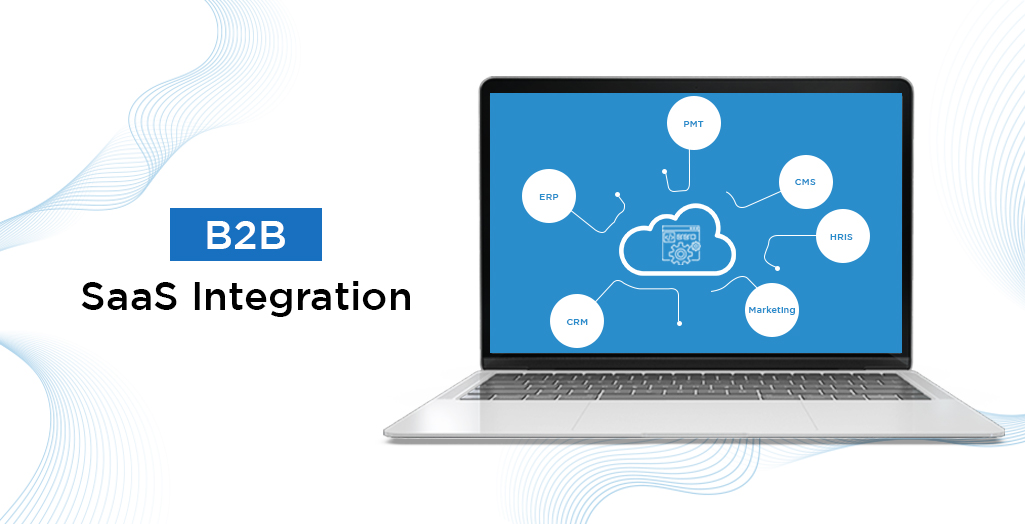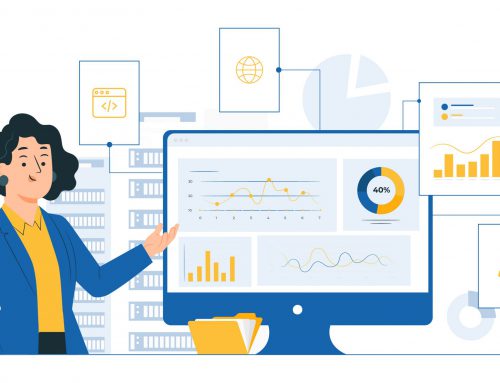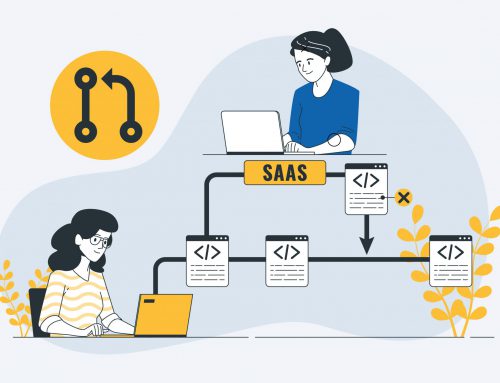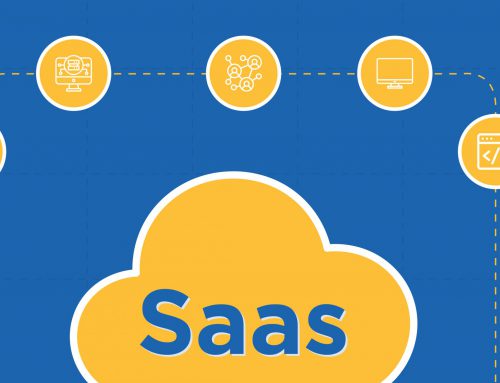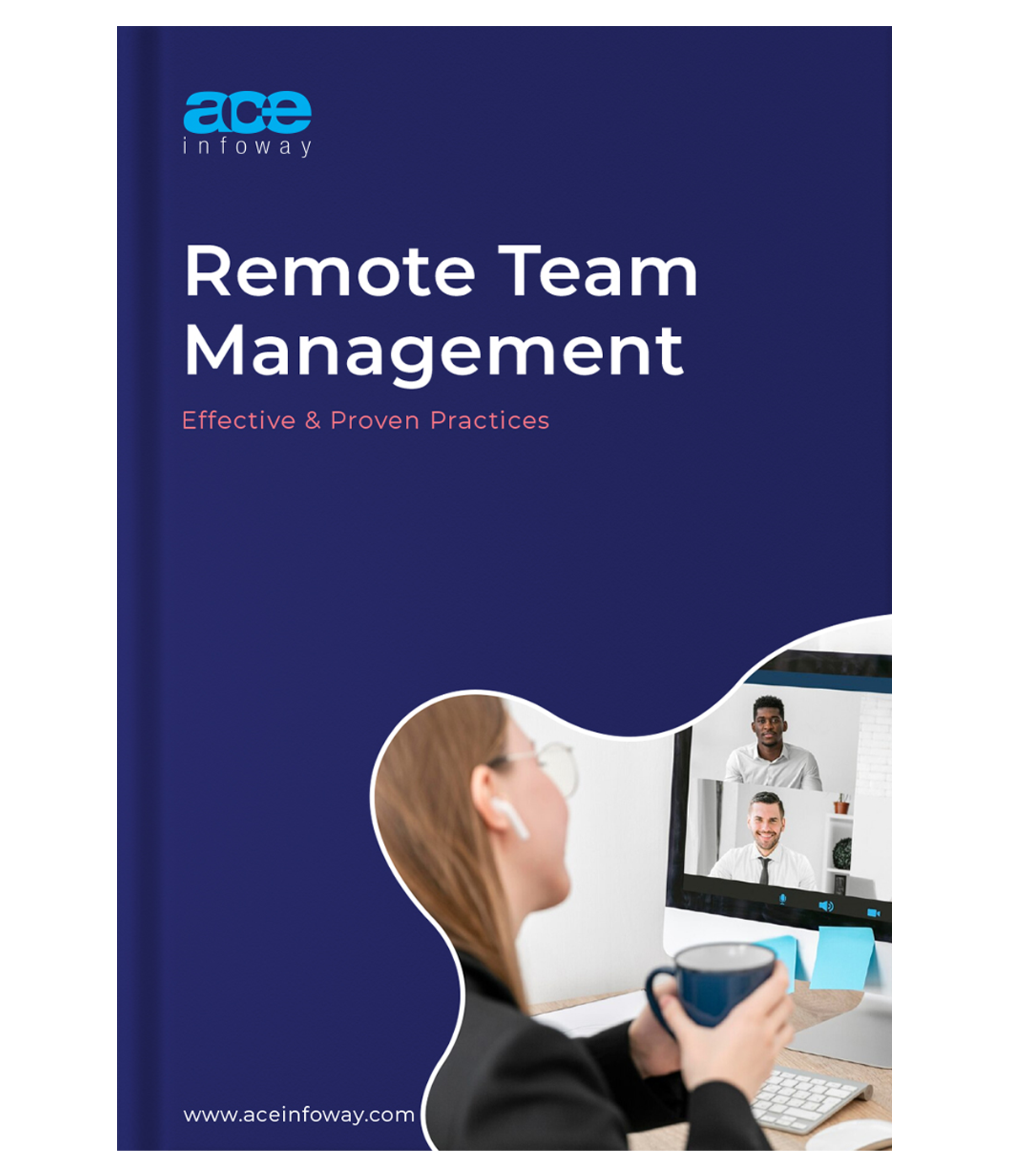Table of Contents
Using different tools for managing your daily B2B operations is a thing of the past! Today businesses need integrated software that can solve all the tasks on one dashboard to simplify the overall work operations and improve overall productivity by saving a lot of time. Moreover, it connects all the team members streamlines different business operations, and keeps track of every progress.
Software as a Service (SaaS) is the priority in the technology stacks of businesses of all sizes – no matter if you are a startup or enterprise-level organization. Every business around the globe in one way or another is using SaaS for smooth and efficient business operations.
The growth of the SaaS industry is expected to surpass the investment of USD 571.9 billion by 2027 at a CAGR of 20.6% during the forecast period of 2022-2027 as per the research by BCC.
For businesses having multiple departments and teams using software tools, it is crucial to ensure that, each team and user make the most out of the SaaS for the desired outcome. For sales teams it is a CRM platform, for finance it is an ERP system, for HR department it is a human resource information system (HRIS). Every department has dedicated SaaS platforms, but how can you direct all SaaS platforms toward unified organizational goals and objectives?
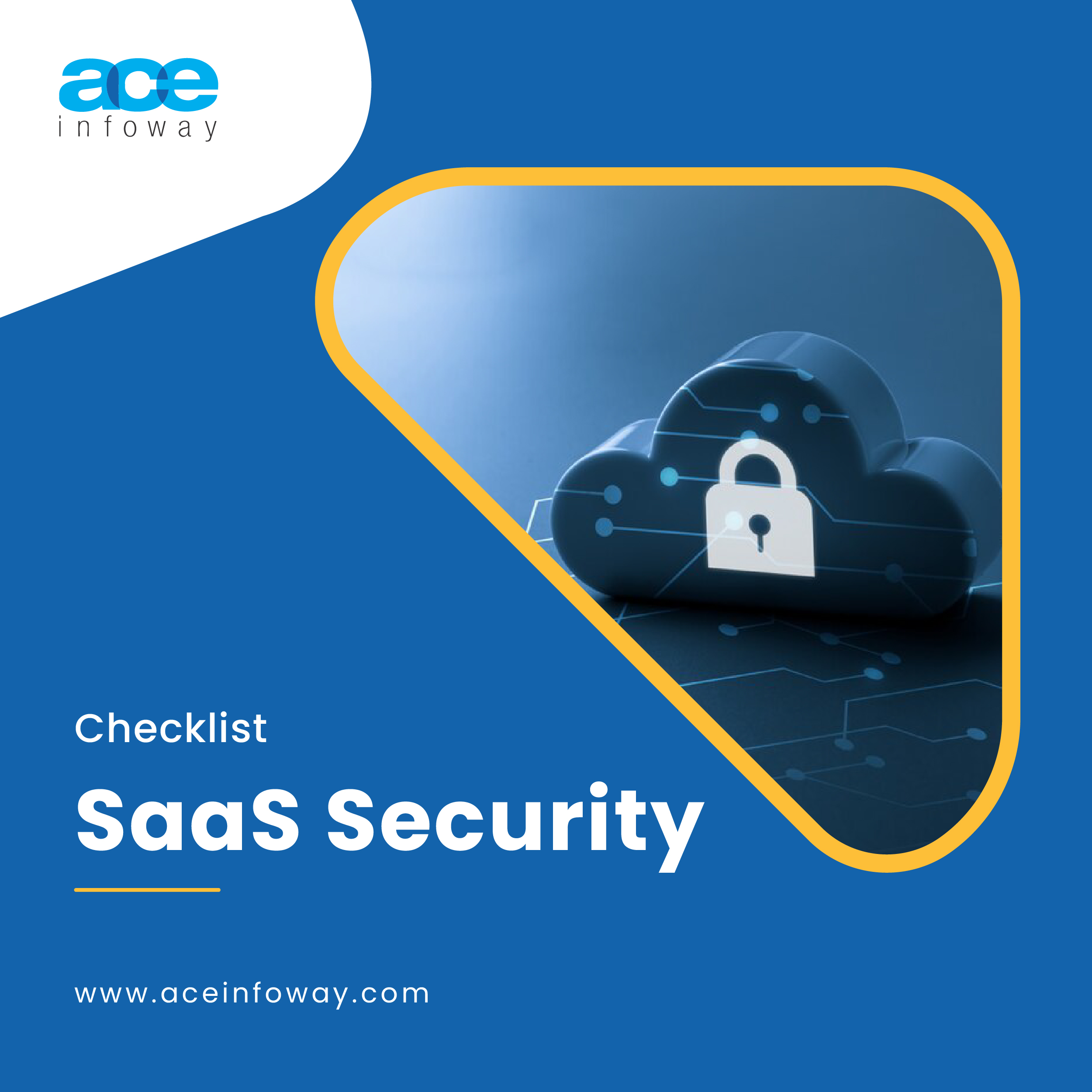
SaaS Security Checklist
Get your free copy
You must undertake SaaS integration within your technological ecosystem to make the most of each app. Before delving into the benefits, challenges, and concerns of the need for SaaS integration platforms let’s have a brief understanding of SaaS integration.
What is SaaS Integration?
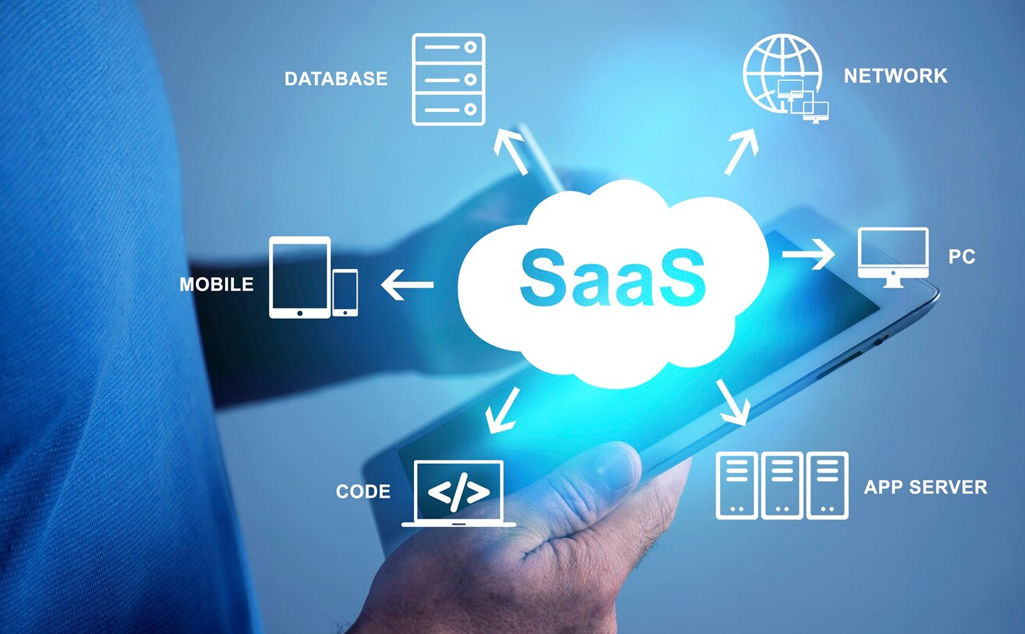
Just like connecting APIs or databases, SaaS integration effortlessly links multiple SaaS applications, facilitating smooth data transfer. Usually orchestrated through a centralized cloud platform, such as middleware or an integration platform, SaaS integration simplifies the communication between SaaS apps.
SaaS integration acts as a bridge, enabling interconnected apps to converse seamlessly. This capability allows for data synchronization across various sources or facilitates the transfer of information from one application to another, resolving dependencies and enhancing operational efficiency.
Why is B2B SaaS Integration Important?
Software as a Service (SaaS) integration has become increasingly important for businesses due to its ability to enhance efficiency, streamline processes, and improve overall productivity. Integrating various SaaS applications into their workflows allows businesses to create a cohesive ecosystem where different tools and systems communicate and share data seamlessly. As per the survey done by Gartner in 2022, around 83% of B2B buyers are interested in investing in online services.
Here are the important aspects of the SaaS integration platform for B2B:
1) Streamlined Operations
B2B SaaS integration enables seamless connectivity between different SaaS applications used by multiple departments and units of organizations. This integration streamlines various business processes leading to improved operational efficiency and smoother transactions between partners.
Through seamless connectivity with diverse SaaS or cloud-native applications via a centralized backend interface, automated data transfer, synchronization, and processing have become achievable. This eliminates the need for manual data entry and processing, ensuring error-free productivity. Furthermore, by streamlining these operations, significant time can be saved, allowing for a focus on high-value business activities that foster growth.
For instance, by integrating two renowned B2B SaaS solutions, such as SAP ERP for streamlined business processes, and Salesforce CRM for efficient customer interactions, comprehensive insights into customer information are unlocked post-successful order creation.
2) Robust Collaboration
The B2B SaaS integration platform facilitates better collaboration between businesses by enabling the exchange of data and information in real-time. SaaS connect ensures that partners have access to accurate and up-to-date information, fostering stronger collaboration and more effective communication.
SaaS integration, coupled with automated data transfer, not only streamlines communication and collaboration between company employees and customers but also ensures that end requirements are met within defined timelines.
For example, the integration of CRM with an ERP solution using SaaS integration platforms provides businesses with updated latest customer information and project details enabling the provision of dedicated, effective services.
When discussing B2B SaaS integration, two pivotal models emerge data-level integration and people-level SaaS solution integration. These models significantly facilitate efficient collaboration and workflow between multiple organizations.
3) Enhanced Customer Experience
By integrating SaaS applications across the B2B supply chain, businesses can deliver a more cohesive and personalized customer experience. For example, integrated customer relationship management (CRM) and order management systems enable businesses to provide seamless order tracking and support, enhancing customer satisfaction and experience.
Moreover, by aggregating data from multiple sources, B2B SaaS integration empowers businesses to gain deeper insights into customer preferences, behavior, and buying patterns, enabling them to tailor their products and services to meet customer needs more effectively.
SaaS integration software facilitates B2B with greater visibility into their business operations by aggregating data from multiple sources. This visibility enables businesses to gain valuable insights into market trends, customer behavior, and operational performance, empowering them to make more informed decisions and drive growth.
4) Scalability & Adaptability
At times, your primary and hub SaaS solutions may encounter limitations as your company scales up. B2B SaaS integration offers scalability and adaptability, allowing businesses to easily scale their operations and adapt to changing market conditions.
Whether it’s onboarding new partners, expanding into new markets, or launching new products, the SaaS integration platform provides the flexibility needed to support business growth and innovation.
B2B SaaS integration serves as the backbone for achieving automation within your SaaS solutions. This is particularly crucial for businesses leveraging numerous SaaS and cloud-based applications across various departments.
4) Automation & Accuracy
Humans are susceptible to errors, particularly when tasked with repetitive and tedious data entry jobs. Even the smallest mistake in data entry can result in significant time spent rectifying errors. This delay in solution delivery can lead to customer dissatisfaction, posing a threat to business success.
B2B SaaS integration emerges as a beacon of efficiency for businesses, offering automated and seamless data transfer between cloud-based applications. With SaaS integration, businesses can effortlessly transfer requested information from one application to another without human intervention, ensuring accuracy and timely delivery of solutions.
SaaS integration software eliminates the risk of errors and delays, contributing to improved customer satisfaction and business performance.
5) Transparency & Security
With B2B SaaS integration, your team gains access to the data they need effortlessly through the existing app. This streamlined access to information not only saves time but also eliminates the need for constant interruptions and fosters transparency.
Let’s try to understand this with one simple illustration:
Operating an online finance business catering to diverse customer categories like loan sharks, businesses, and regular users poses challenges in obtaining accurate insights for informed decision-making. The absence of transparency within the system hinders the ability to discern specific user trends and preferences, impeding targeted business strategies and customer service enhancements.
The SaaS integration platform empowers access to comprehensive transaction data across various accounts and user demographics, enabling precise targeting of business campaigns and delivery of effective customer services.
B2B SaaS integration helps businesses ensure compliance with industry regulations and data security standards. By centralizing data management and implementing robust security measures, businesses can mitigate the risks associated with data breaches and regulatory non-compliance, safeguarding sensitive information and protecting their reputation.
How SaaS Integration Became Need of The Hour?

Point Solutions and Hub Solutions are the two types of software solutions available for businesses. Some might opt for SaaS solutions and some opt for critical solutions. Point Solutions and Hub Solutions, both can solve your specific business problems but hub solutions play a crucial while solving problems related to generic areas of your business to make operations work smoothly.
Up to a certain limit and scalability, the point solutions could be effective for your business. But when your business scales, there is a possibility that you start facing some limitations with the point solutions because no software can sustain efficiency beyond its capacity. To solve this barrier limitation, you just need to have an integration platform for b2b SaaS to have extended support to make a SaaS product have broader, scalable scopes.
Hub solutions such as CRM, there’s an obvious inclination for scalability to align with increasing demands. However, transforming it into a universally applicable product leveraging SaaS integration is a suitable measure for centralized management to make your business grow with a streamlined workflow system.
It can be difficult for users to manage multiple software platforms and they may miss out on important files, work, schedules, or data. Modern businesses aren’t merely seeking another standalone software; they look for a comprehensive software ecosystem that empowers them to accomplish more within a single solution. And what can be a better option than developing a custom and integrated software solution to cater specific needs of your business?
Popular B2B SaaS Product Integration Patterns
According to a Statista survey conducted in 2022, the US houses approximately 17,000 SaaS companies, catering to 59 billion customers globally. The UK claimed the second spot in the list with 2,000 SaaS companies, serving an impressive 3 billion customers worldwide.
Businesses using SaaS platforms will need an integration platform for B2B SaaS products to streamline the operational workflow and provide a centralized solution. The popular patterns for B2B SaaS integration are:
- Vendor-based (iPaaS): It refers to an Integration Platform as Service solutions offered and managed by specific vendors or providers facilitating the integration of various applications, systems, and data sources within an organization.
- Developer-based SaaS Integration: It is a process of integrating SaaS applications using developer-centric tools and resources. In this approach, developers leverage APIs, SDKs, and other tools provided by SaaS vendors to build custom integrations between different applications.
- Event-driven SaaS Integration: Integration of SaaS with an event-driven approach relies on the exchange of events or messages between different systems. It is designed to respond to specific events or changes occurring in SaaS apps triggering actions and sharing data in real-time.
- Scheduled Integration: When dealing with a system lacking webhooks or pub/sub-system support, you can turn to scheduled integration. Unlike event-driven setups, scheduled integration operates on a set schedule, activating at designated times to retrieve data.
- Synchronous Integration: This approach is used for immediate feedback or confirmation, such as online transactions or interactive communication between apps. With synchronous integration, data is exchanged and actions are performed immediately upon request.
- Hybrid Integration: With hybrid integration, it is possible to perform two integration patterns in a single integration with defined workflows and logic. It involves the combination of elements of both cloud-based SaaS solutions and on-premises systems to create a cohesive and unified data ecosystem.
B2B SaaS Integration Security Measures
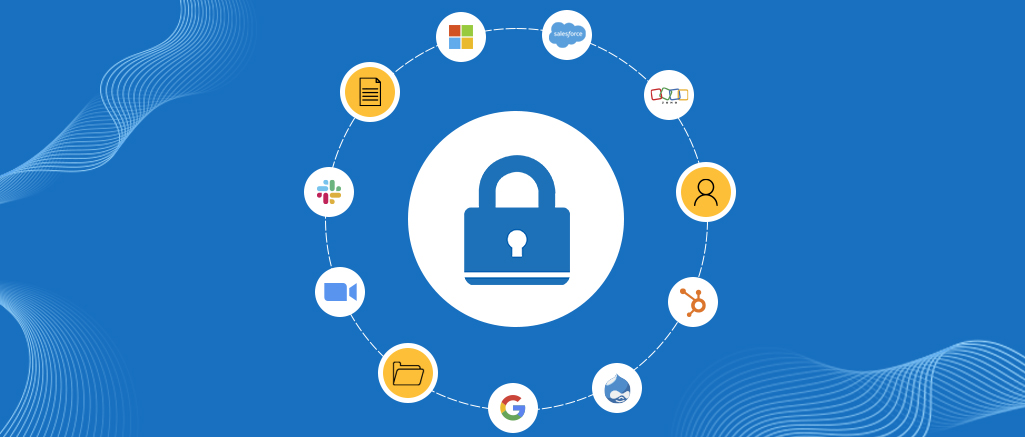
There are some challenges businesses can face with the process of B2B SaaS integration- SaaS sprawl is among the biggest.
The development of SaaS solutions frequently results in the creation of data silos and the complication of manual processes, particularly in organizations utilizing multiple apps to manage various operations. Moreover, when the permissions of these SaaS applications overlap, it can introduce complexities during the phase of SaaS integration, affecting the integration process, business operations, and growth.
Moreover finding the right SaaS integration for B2B is another challenge followed by the risk of data security. Here are a few effective security measures applicable to integration platforms for B2B SaaS:
- Incorporating real-time threat detection and protection
- Enhancing data integration capabilities
- Enforcing strict protocols against password sharing
- Implementing robust access controls with multi-factor authentication
- Continuously monitoring integration activities and conducting regular audits
- Conducting thorough vulnerability assessments and management procedures
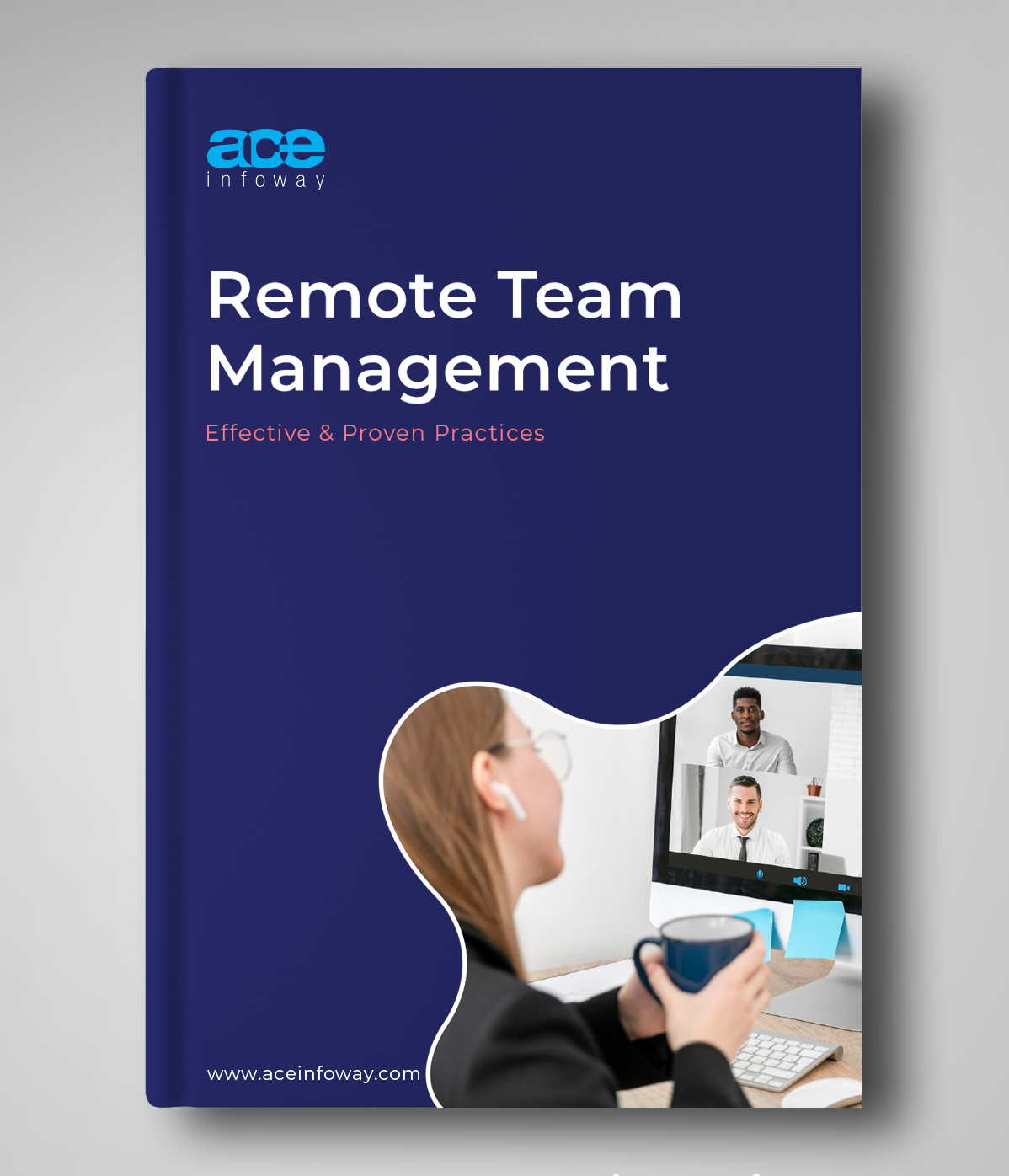
Remote Team Management Proven Strategies for 2024
Get your free copy
Conclusion
In today’s era of technological advancement and data-driven businesses, it is essential to streamline and manage business operations leveraging SaaS solutions. Integrating these existing SaaS solutions adds significant value by synchronizing data across various software, thereby enhancing overall business processes.
Ace Infoway has extensive experience of more than 20 years serving multiple businesses with SaaS product development around the globe with a team of experts. We offer comprehensive SaaS development services and result-oriented consultation. Contact us if you’re looking for an experienced and skilled team for B2B SaaS integration.









